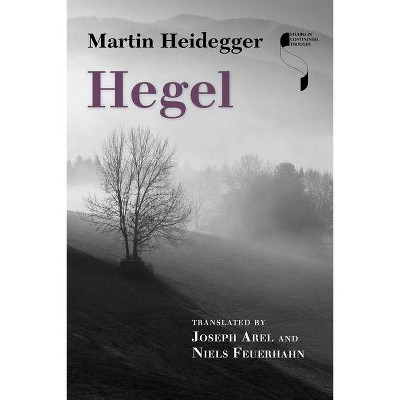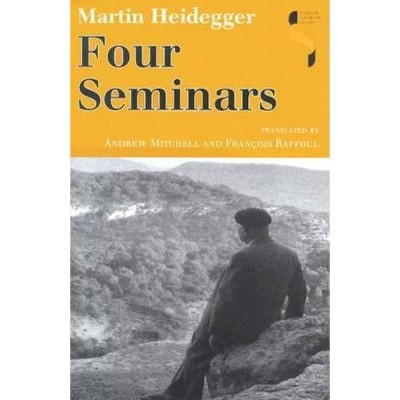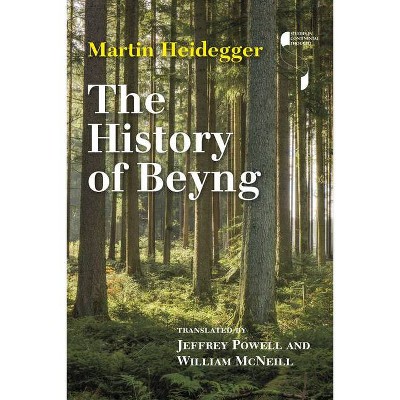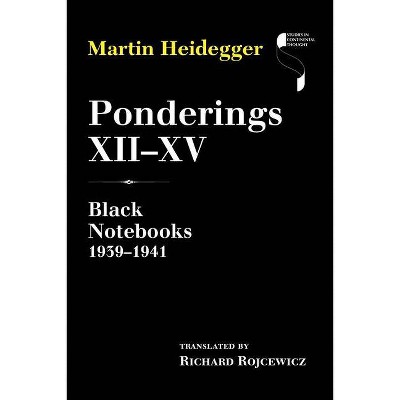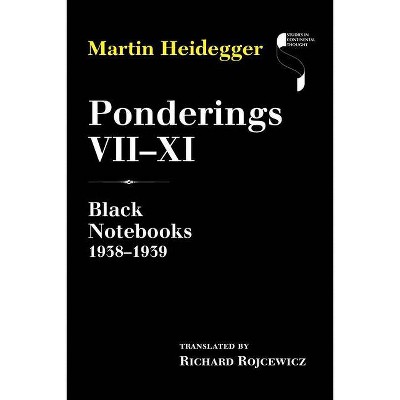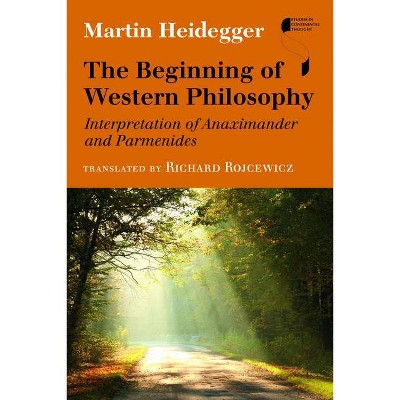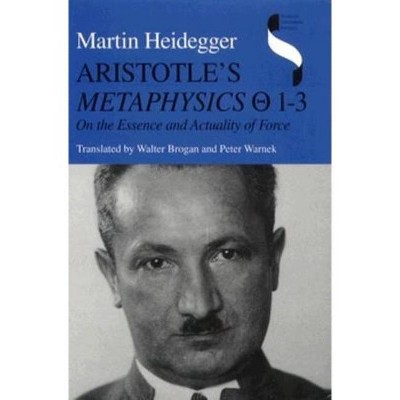The Young Heidegger - (Studies in Continental Thought) by John Van Buren (Hardcover)
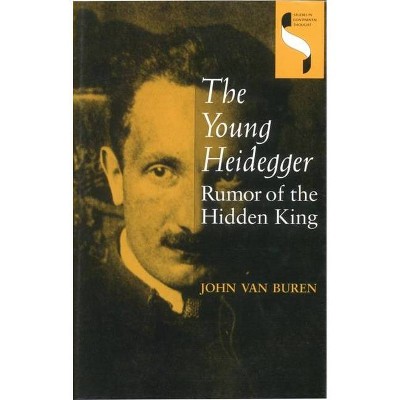
Similar Products
Products of same category from the store
AllProduct info
<p/><br></br><p><b> About the Book </b></p></br></br>CaputoA startling new reading of Martin Heidegger's early thought leading up to Being and Time (1927) and its subsequent development in his later writings.<p/><br></br><p><b> Book Synopsis </b></p></br></br><p>. . . a major contribution to Heidegger scholarship . . . --Journal of the History of Behavioral Sciences</p><p>Van Buren's portrayal of these formative years is striking and vital to all future Heidegger scholarship. --Christian Century</p><p>Van Buren presents a clear and cogent argument for the theory that Martin Heidegger's mature thought, epitomized in Being and Time, actually was a return to his youthful theory and concerns. . . . Van Buren's ability to present a rounded discussion while using Heidegger's own technical vocabulary is highly commendable. --Library Journal</p><p> . . . here at last is a work on the philosopher that is of fundamental philosophical-historical import. Van Buren's book is both interesting and well written . . . --Choice</p><p> . . . a readable, interesting, and first-rate book. --John D. Caputo</p><p>A startling new reading of Martin Heidegger's early thought leading up to Being and Time (1927) and its subsequent development in his later writings.</p><p/><br></br><p><b> From the Back Cover </b></p></br></br>Hannah Arendt wrote that Martin Heidegger's reputation as a thinker and teacher during the early 1920s traveled throughout Germany "like the rumor of the hidden king". In The Young Heidegger, John van Buren offers a new reading of Martin Heidegger's youthful thought leading up to Being and Time (1927) and its subsequent development in his later writings. Part One deconstructs Heidegger's later autobiographical accounts of his early period, demonstrating that the philosopher's famous "turn" after Being and Time was in fact also a re-turn to his youthful thought. Part Two examines Heidegger's student years, showing the influences of Scholasticism, medieval mysticism, Neo-Kantianism, and phenomenology on his thinking during this period. Part Three focuses on Heidegger's early Freiburg period, sketching his project of demythologizing metaphysics and effecting the end of philosophy. Part Four traces the young Heidegger's anarchic, personalist formulations of his new postmetaphysical beginning. Van Buren employs Heidegger's youthful thought to work out strategies for demythologizing problematic aspects of his later thought (such as the eclipse of the personal Other, essentialism, ethnocentrism, genderism, and anthropocentrism) and to liberate its more radical countertendencies within contemporary debates.<p/><br></br><p><b> About the Author </b></p></br></br><p>JOHN VAN BUREN is Assistant Professor of Philosophy at Fordham University. He is co-editor of Reading Heidegger from the Start: Essays in His Earliest Thought and The Early Heidegger: New Texts and translator of Martin Heidegger, Ontology (Hermeneutics of Facticity).</p>
Price History
Price Archive shows prices from various stores, lets you see history and find the cheapest. There is no actual sale on the website. For all support, inquiry and suggestion messagescommunication@pricearchive.us
